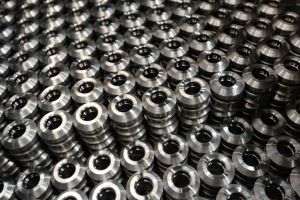Even without the court ruling rendered in first instance by the High Court of Cassation and Justice in the lawsuit of the fictitious hiring at the Child Protection Department of Teleorman the focus on getting all the institutional levers under the - informal, but all the more important - authority of Liviu Dragnea. But, after his conviction on June 21, this trend will speed up. But only through this kind of concentration of power can the president of the Chamber of Deputies hope to change not only the balance of power - which is already favorable to him, even though nothing is final in politics -, but the legislation based on which he has been sentenced, so that he gets exonerated of any legal responsibility. Or, when the powers of the state are concentrated in the hands of one man, democracy, even though it may be only a façade, moves aside to be replaced by autocracy. And in Romania, the temptation of autocracy, hidden under the veil of illiberalism, is more powerful than it has ever been, after the fall of communism. Could this be just an accident owed to the meteoric apparition of Liviu Dragnea?
The PSD president is not the first nor the last Romanian politician tempted by autocracy. Prior to him, others, former presidents (Ion Iliescu, Emil Constantinescu, Traian Băsescu) or former prime-ministers (Adrian Năstase) have had such tendencies. But every time, the international context and the internal political game have slowly reduced this pressure. But today, both the international as well as the regional context, favor autocracy, and domestically, since 1990, the monopoly of a party has never manifested itself so strongly.
But often times, the analysis of the hasty slip of a democracy towards authoritarianism falls under the influence of various deterministic explanations. The most often used is economic determinism, which overlooks the absence of democracy, to place an optimistic emphasis on the construction of capitalism. That's how it's happened in Erdogan's Turkey, and some people seem to be thinking along the same premise in Romania, suggesting that "democracy doesn't put food on the table"! On the other hand, in an age of the populist exploitation of public opinion, cultural determinism is also used. In this case are emphasized cultural or religious traditions, as well as the so-called national identities, like the Junimists used to do it about 150 years ago through the theory of empty social structures imported in Romania from abroad. Democracy would only be here an artificial copy, which goes against traditions. That is why, only through limiting democratic "abuses" (of the rights of children or gender equality, for instance) will be used the authentic and pure form of the nation. And the third type of determinism, the political one, is trying to reduce everything to the simple functioning of political institutions. But policy can't exist independently from economic and cultural influences.
Unlike his predecessors, Liviu Dragnea benefits from a favorable from a politically favorable climate, as well as from a serious capacity of strategic planning. The anticorruption offensive staged with the help of the Westerners has created an implicit, but very efficient solidarity of the majority of the national or local politicians. Hence the concerted attack announced by the PSD after the Executive Committee held following the first instance conviction of the president of the party shouldn't encounter any serious resistance from other parties or political institutions, with the exception of that of the president.
After the victory of the Parliamentary election of December 2016, PSD and its president had the first move, which gave the ability to recover.
That's how it went after the president's refusal to nominate Sevil Shhaideh or in the case of Emergency Government Ordinance 13. And again, in the case of his conviction, Liviu Dragnea is sentenced to a tactical retreat, in order to execute a counterattack of an unprecedented power. That is why the most difficult moment in the recovery of the offensive would be represented by the motion of no-confidence submitted by the opposition and which will be voted on Wednesday, June 27. Arithmetically, the PSD wouldn't have any problems, but politics and arithmetic don't always go hand in hand. Nevertheless, neither PNL nor the other parties, nor president Iohannis allowed any reasonable way out for the members of the PSD or ALDE willing to fight against their own. Or, if the vote of no-confidence fails, Liviu Dragnea will come out stronger, thus allowing the counteroffensive. Offensive which will also take place at a legislative and institutional level.
Legislatively, attempts will be made quickly amending the legislation, either through an Emergency Government Ordinance, or through the assumption of the government's responsibility, or through a quick parliamentary procedure. In the case of the Emergency Government Ordinance, the president's resistance could be eliminated, with the exception of the case stipulated by art. 87 of the Constitution, if the president participated in the government's meeting. In this case, invoking the need to "guarantee public order" - and public order concerns the ensemble of legal norms based on which the rule of law operates -, the president would rightfully operate the government meeting, which he would also lead. In this case, the passing of a Government Emergency Ordinance could perhaps be postponed. In the other cases, the president and the opposition have available the classic constitutional means to extend the legislative process by a few months. But neither the PSD, nor Liviu Dragnea, have a few months available, which would bring to the forefront the suspension and the revocation of the president. Once it comes to that, the transition to autocracy will be almost complete.

















































1. caca maca
(message sent by chirila mihai on 17.08.2018, 21:51)
la oraca fachiu men in blindul ben ..,mnbvbnm,